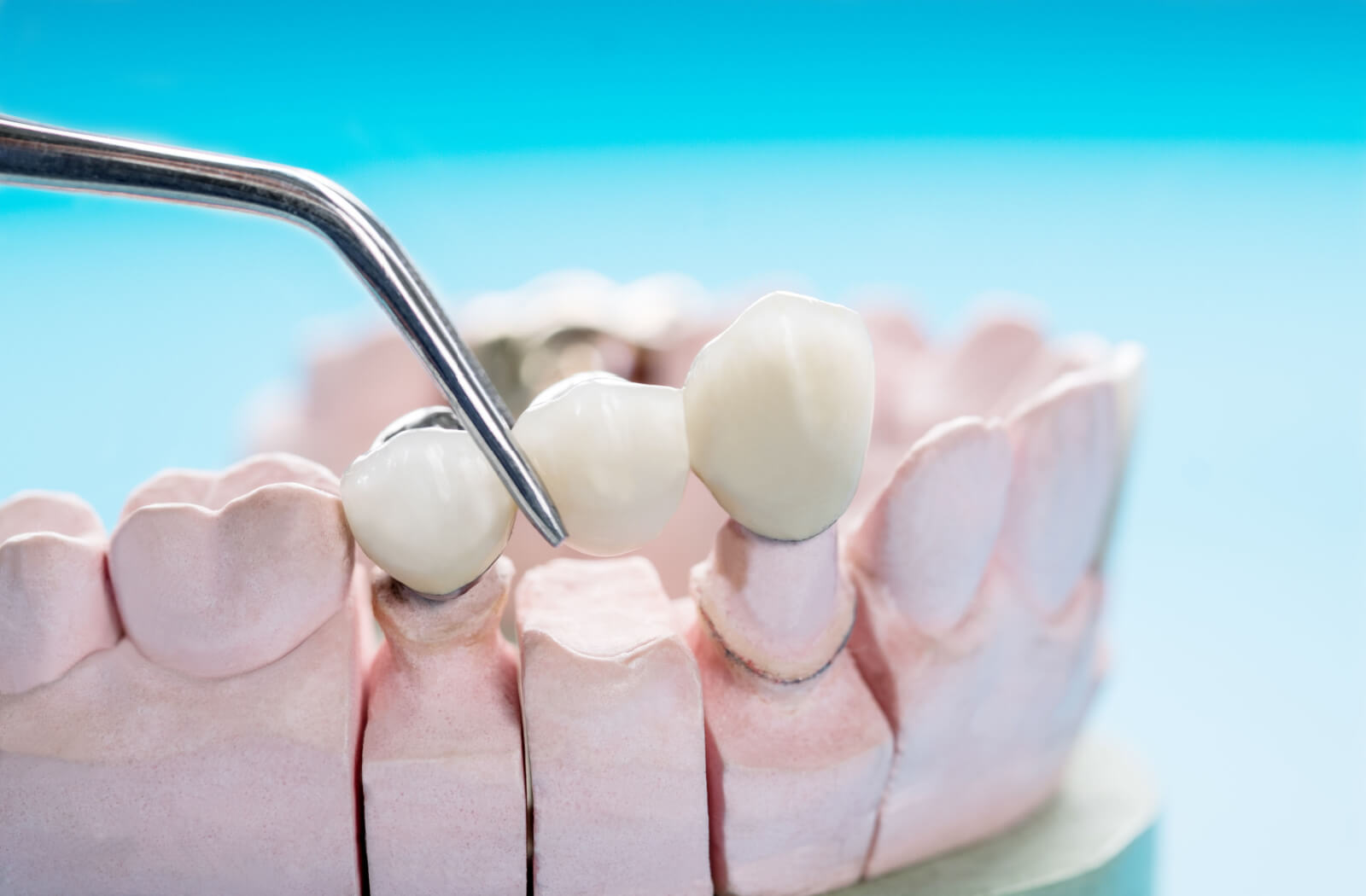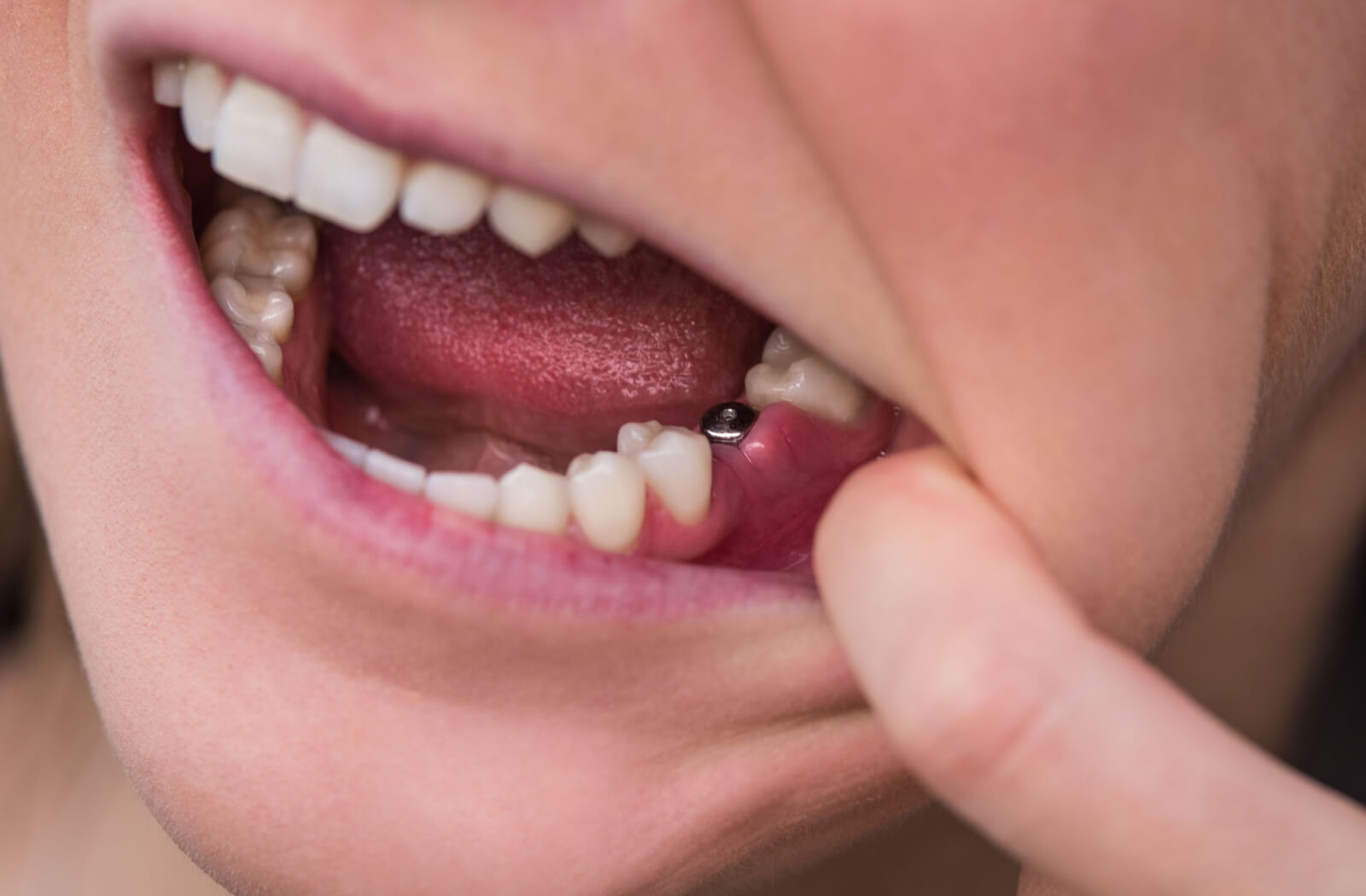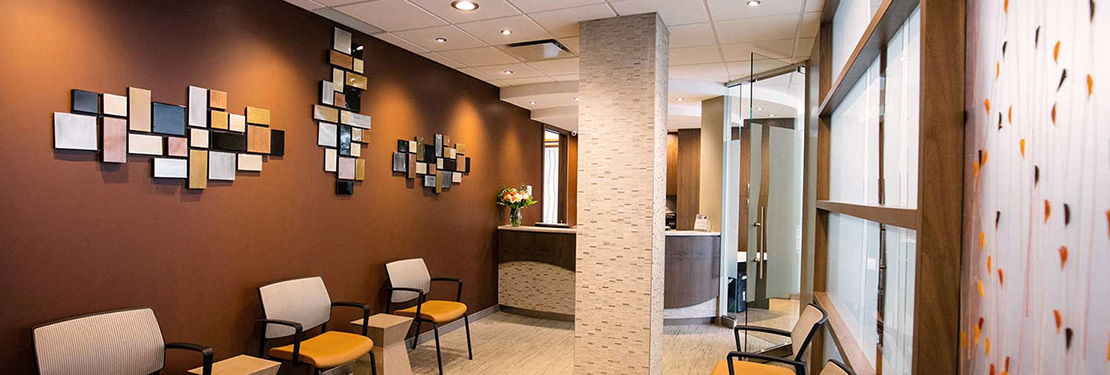Missing teeth not only affect your appearance but can also interfere with basic functions like eating and speaking, and in severe cases, can even affect your facial shape and structure. There are many reasons for missing teeth, including decay, injury, and genetics.
Missing teeth can be uncomfortable, but modern dentistry gives us options for restoring your smile. Dental implants, dentures, and bridges are all popular ways for dentists to replace missing teeth.
Dental Implants for Missing Teeth
Dental implants are a popular method of replacing missing teeth. A dental implant consists of 3 components:
- A titanium screw, which is the implant itself
- An abutment that connects the implant to the third component
- An artificial tooth, also called a crown
Implant surgery involves a few steps. The first step is a thorough consultation with a dentist to evaluate if you are a candidate for dental implant surgery. During this appointment, your dentist can take digital images and scans of your teeth and jaw to assess their health.
If your dentist determines you’re a good candidate, they can schedule a surgery date to insert the titanium screw into the jawbone. After they insert the implant, it can take 3–6 months for the screw to bond with the jawbone, fusing securely and becoming a permanent fixture in your mouth.
During the second appointment, the dentist will fit the abutment and crown. Once they fit the prosthetic tooth, the implant becomes a part of your smile, offering a stable foundation that could last for years to come.
The Benefits of Dental Implants
Dental implants offer numerous benefits for those looking to replace missing teeth. Firstly, they can look and feel like natural teeth, providing you with the necessary support to chew, speak, and laugh comfortably.
Dental implants are a permanent fixture in your mouth, potentially eliminating the inconvenience that comes with removable dentures. They can also be easier to care for since you can brush and floss your implants, just like your natural teeth.
Dental implants can also help prevent bone loss by stimulating bone growth, preventing further bone deterioration that can lead to collapsed facial features.
Dentures for Missing Teeth
Dentures have been around for centuries as an option for replacing missing teeth. Modern-day advancements in dentistry have made dentures more comfortable, durable, and effective than ever before.
Dentures are removable appliances that replace missing teeth and surrounding tissue. They consist of a gum-coloured acrylic base that fits on the gums and holds the artificial teeth in place.
There are 2 types of dentures:
- Partial dentures to replace only a few teeth
- Complete dentures to replace all the teeth in the upper or lower jaw
Your dentist will take impressions of your mouth and make measurements and models to create your custom denture. You may need to come back for several fittings and adjustments before your denture fits comfortably. Dentures can match the colour, shape, and size of your existing teeth for a more natural look.
Dentures work by restoring the function and appearance of missing teeth. They support the cheeks and lips, which can collapse when teeth are missing, causing premature aging and facial sagging. Dentures also enable you to chew and speak properly, potentially preventing digestive problems and communication difficulties.
To wear dentures, you must have enough bone and gum tissue to support them, which may require a preliminary procedure such as tooth extractions or grafts.
The Benefits of Dentures
Dentures can be ideal for people who have lost several, most, or even all of their teeth. Just like natural teeth, dentures need to be cleaned every day to prevent plaque buildup. However, since they can be removed, it may be easier to reach spots that would normally be too difficult to clean.

Bridges for Missing Teeth
Dental bridges are structures fixed in place to replace missing teeth and develop stability in the mouth. There are 4 types of dental bridges: traditional bridges, implant-supported bridges, cantilever bridges, and resin-bonded bridges.
Traditional Bridge
Traditional bridges are the most common type. A dentist anchors the bridge by placing dental crowns on the natural teeth on each side of the gap. They’ll have to file down these adjacent teeth in preparation for the supporting crowns.
These types of bridges are made of ceramic or porcelain materials and can be customized to match the colour of the natural teeth.
Implant-Supported Bridge
Implant-supported bridges are an excellent option when the natural teeth surrounding the gap are not strong enough to support a traditional dental bridge. A set of dental implants set into the jawbone anchor a row of artificial teeth in the gap.
Implant-supported bridges could even replace an entire row of teeth with enough implants.
Cantilever Bridge
Cantilever dental bridges are an ideal option when the missing tooth has adjacent teeth, but only one of those teeth can withstand a dental crown. These types of bridges are bonded to 1 or more teeth on 1 side of the gap, which enables the bridge to hang freely.
Cantilever bridges are recommended for areas that put minimal stress on the teeth.
Resin-Bonded (Maryland) Bridge
Resin-bonded dental bridges are ideal for patients with natural teeth strong enough to support the bridge but don’t necessarily want the crowned teeth involved. A resin-bonded bridge is composed of a bridge with metal, porcelain, or resin “wings” on either side.
A dentist cements these wings to the inner side of the natural teeth on each side of the gap. Resin-bonded bridges are more common in front teeth, where pressure and stress are minimal. They have gained popularity as a more conservative approach to dental bridges.
Restoring a Brighter Smile
With so many options, knowing which types of dental treatment to choose can seem overwhelming, but our expert team at Ti Dental can help you navigate this decision. We can examine your teeth and help find a solution to help you achieve a long-lasting smile.
If you’re missing 1 or more teeth, book an appointment, and let’s start the discussion about how we can restore your smile.








